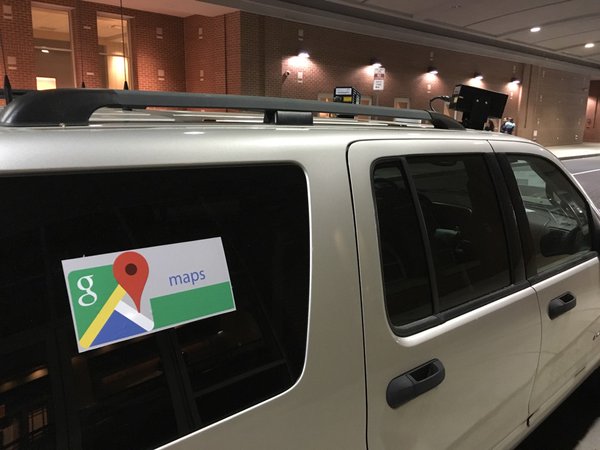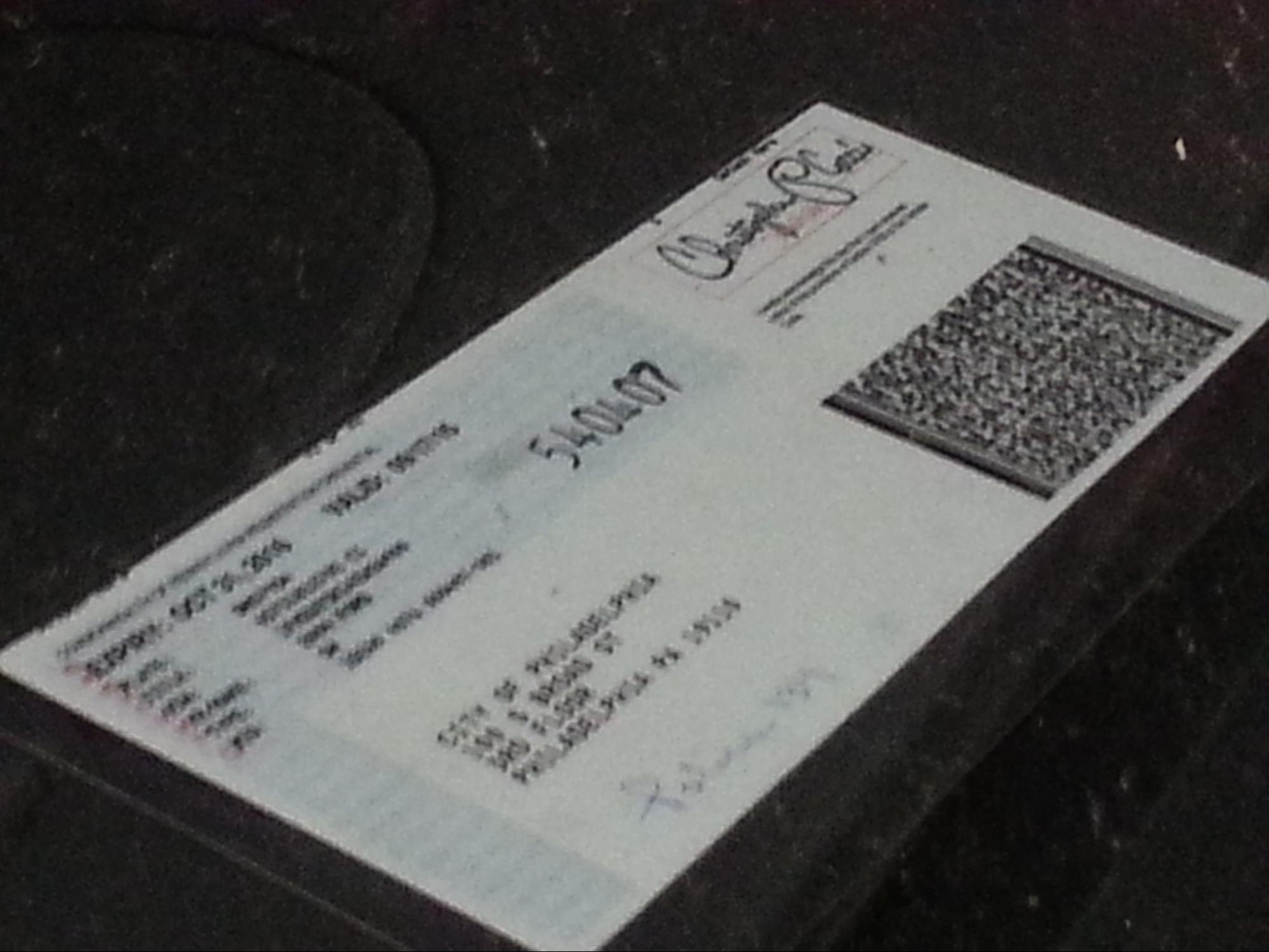Has the bureau investigated this material?
On Friday, FBI Director James Comey set off a political blast when he informed congressional leaders
that the bureau had stumbled across emails that might be pertinent to
its completed inquiry into Hillary Clinton's handling of emails when she
was secretary of state. The Clinton campaign and others criticized
Comey for intervening in a presidential campaign by breaking with Justice Department tradition
and revealing information about an investigation—information that was
vague and perhaps ultimately irrelevant—so close to Election Day.
On
Sunday, Senate Minority Leader Harry Reid upped the ante. He sent Comey a
fiery letter
saying the FBI chief may have broken the law and pointed to a
potentially greater controversy: "In my communications with you and
other top officials in the national security community, it has become
clear that you possess explosive information about close ties and
coordination between Donald Trump, his top advisors, and the Russian
government…The public has a right to know this information."
Reid's missive set off a burst of speculation on Twitter and
elsewhere. What was he referring to regarding the Republican
presidential nominee? At the end of August, Reid
had written
to Comey and demanded an investigation of the "connections between the
Russian government and Donald Trump's presidential campaign," and in
that letter he indirectly referred to
Carter Page,
an American businessman cited by Trump as one of his foreign policy
advisers, who had financial ties to Russia and had recently visited
Moscow.
Last month,
Yahoo News reported that US intelligence officials were probing the
links between Page and senior Russian officials. (Page has called accusations against him
"garbage.") On Monday, NBC News
reported
that the FBI has mounted a preliminary inquiry into the foreign
business ties of Paul Manafort, Trump's former campaign chief. But
Reid's recent note hinted at more than the Page or Manafort affairs. And
a former senior intelligence officer for a Western country who
specialized in Russian counterintelligence tells
Mother Jones that
in recent months he provided the bureau with memos, based on his recent
interactions with Russian sources, contending the Russian government
has for years tried to co-opt and assist Trump—and that the FBI
requested more information from him.
"This is something of huge significance, way
above party politics," the former intelligence officer says. "I think
[Trump's] own party should be aware of this stuff as well."
Does this mean the FBI is investigating whether Russian intelligence
has attempted to develop a secret relationship with Trump or cultivate
him as an asset? Was the former intelligence officer and his material
deemed credible or not? An FBI spokeswoman says, "Normally, we don't
talk about whether we are investigating anything." But a senior US
government official not involved in this case but familiar with the
former spy tells
Mother Jones that he has been a credible
source with a proven record of providing reliable, sensitive, and
important information to the US government.
In June, the former Western intelligence officer—who spent almost two
decades on Russian intelligence matters and who now works with a US
firm that gathers information on Russia for corporate clients—was
assigned the task of researching Trump's dealings in Russia and
elsewhere, according to the former spy and his associates in this
American firm. This was for an opposition research project originally
financed by a Republican client critical of the celebrity mogul. (Before
the former spy was retained, the project's financing switched to a
client allied with Democrats.)
"It started off as a fairly general
inquiry," says the former spook, who asks not to be identified. But when
he dug into Trump, he notes, he came across troubling information
indicating connections between Trump and the Russian government.
According to his sources, he says, "there was an established exchange of
information between the Trump campaign and the Kremlin of mutual
benefit."
This was, the former spy remarks, "an extraordinary situation." He
regularly consults with US government agencies on Russian matters, and
near the start of July on his own initiative—without the permission of
the US company that hired him—he sent a report he had written for that
firm to a contact at the FBI, according to the former intelligence
officer and his American associates, who asked not to be identified. (He
declines to identify the FBI contact.) The former spy says he concluded
that the information he had collected on Trump was "sufficiently
serious" to share with the FBI.
Mother Jones has reviewed that report and other memos this
former spy wrote. The first memo, based on the former intelligence
officer's conversations with Russian sources, noted, "Russian regime has
been cultivating, supporting and assisting TRUMP for at least 5 years.
Aim, endorsed by PUTIN, has been to encourage splits and divisions in
western alliance." It maintained that Trump "and his inner circle have
accepted a regular flow of intelligence from the Kremlin, including on
his Democratic and other political rivals." It claimed that Russian
intelligence had "compromised" Trump during his visits to Moscow and
could "blackmail him." It also reported that Russian intelligence had
compiled a dossier on Hillary Clinton based on "bugged conversations she
had on various visits to Russia and intercepted phone calls."
The former intelligence officer says the response from the FBI was
"shock and horror." The FBI, after receiving the first memo, did not
immediately request additional material, according to the former
intelligence officer and his American associates. Yet in August, they
say, the FBI asked him for all information in his possession and for him
to explain how the material had been gathered and to identify his
sources. The former spy forwarded to the bureau several memos—some of
which referred to members of Trump's inner circle. After that point, he
continued to share information with the FBI. "It's quite clear there was
or is a pretty substantial inquiry going on," he says.
"This is something of huge significance, way above party politics,"
the former intelligence officer comments. "I think [Trump's] own party
should be aware of this stuff as well."
The Trump campaign did not respond to a request for comment regarding the memos. In the past, Trump has declared, "
I have nothing to do with Russia."
The FBI is certainly investigating the hacks attributed to Russia
that have hit American political targets, including the Democratic
National Committee and John Podesta, the chairman of Clinton's
presidential campaign. But there have been few public signs of whether
that probe extends to examining possible contacts between the Russian
government and Trump. (In recent weeks, reporters in Washington have
pursued anonymous
online reports
that a computer server related to the Trump Organization engaged in a
high level of activity with servers connected to Alfa Bank, the largest
private bank in Russia. On Monday, a
Slate investigation
detailed the pattern of unusual server activity but concluded, "We
don't yet know what this [Trump] server was for, but it deserves further
explanation." In an email to
Mother Jones, Hope Hicks, a Trump campaign spokeswoman, maintains
, "The
Trump
Organization is not sending or receiving any communications from this
email server. The Trump Organization has no communication or
relationship with this entity or any Russian entity.")
According to several national security experts, there is widespread
concern in the US intelligence community that Russian intelligence, via
hacks, is aiming to undermine the presidential election—to embarrass the
United States and delegitimize its democratic elections. And the hacks
appear to have been designed to benefit Trump. In August, Democratic
members of the House committee on oversight
wrote
Comey to ask the FBI to investigate "whether connections between Trump
campaign officials and Russian interests may have contributed to these
[cyber] attacks in order to interfere with the US. presidential
election."
In September, Sen. Dianne Feinstein and Rep. Adam Schiff, the
senior Democrats on, respectively, the Senate and House intelligence
committees, issued a joint
statement
accusing Russia of underhanded meddling: "Based on briefings we have
received, we have concluded that the Russian intelligence agencies are
making a serious and concerted effort to influence the U.S. election. At
the least, this effort is intended to sow doubt about the security of
our election and may well be intended to influence the outcomes of the
election." The Obama White House has
declared Russia the culprit in the hacking capers, expressed outrage, and promised a "proportional" response.
There's no way to tell whether the FBI has confirmed or debunked any
of the allegations contained in the former spy's memos. But a Russian
intelligence attempt to co-opt or cultivate a presidential candidate
would mark an even more serious operation than the hacking.
In the letter Reid sent to Comey on Sunday, he pointed out that
months ago he had asked the FBI director to release information on
Trump's possible Russia ties. Since then, according to a Reid spokesman,
Reid has been briefed several times. The spokesman adds, "He is
confident that he knows enough to be extremely alarmed."

 The placard showing the vehicle is owned by the City of
Philadelphia. Image: Dustin Slaughter
The placard showing the vehicle is owned by the City of
Philadelphia. Image: Dustin Slaughter






